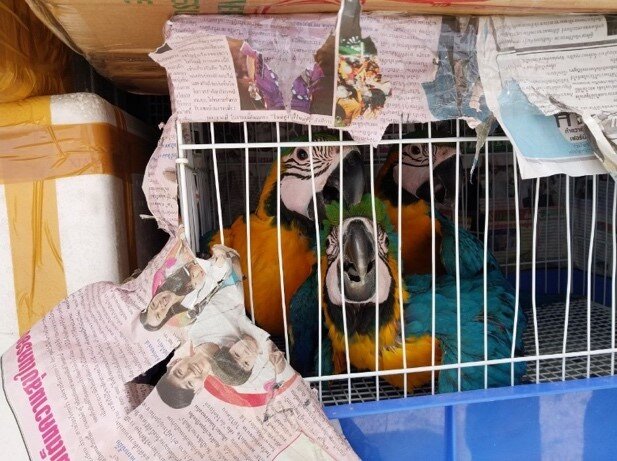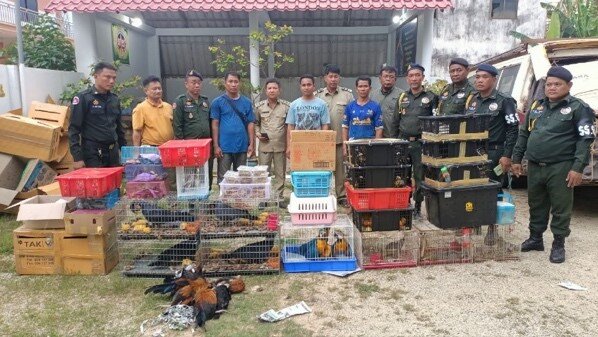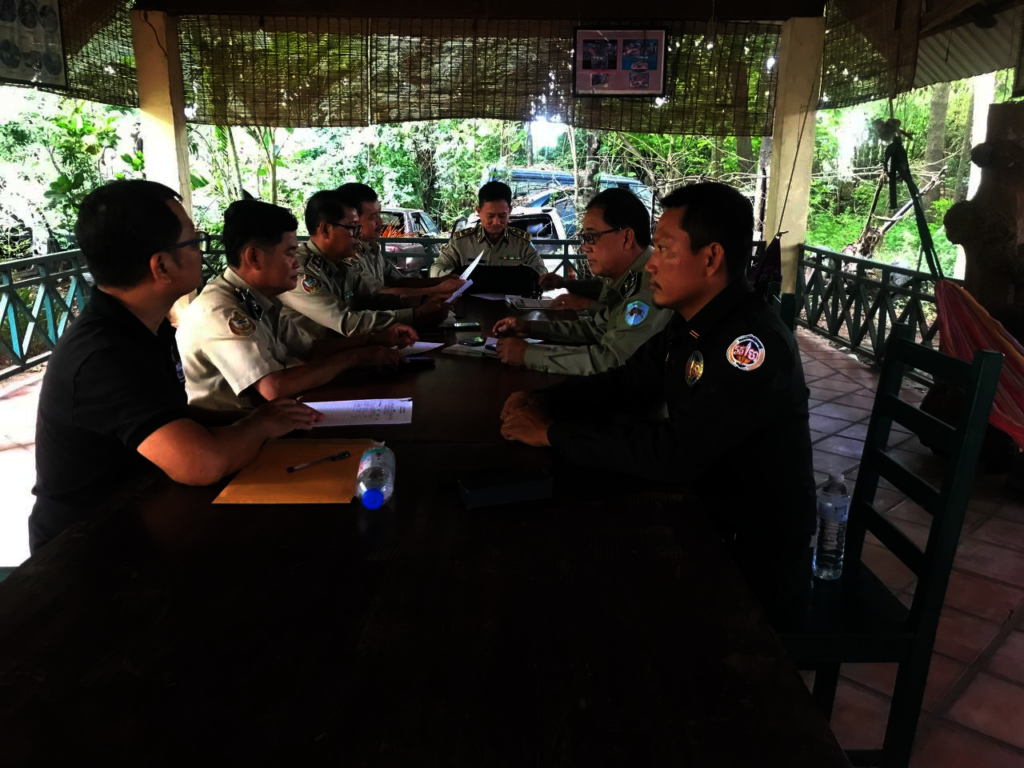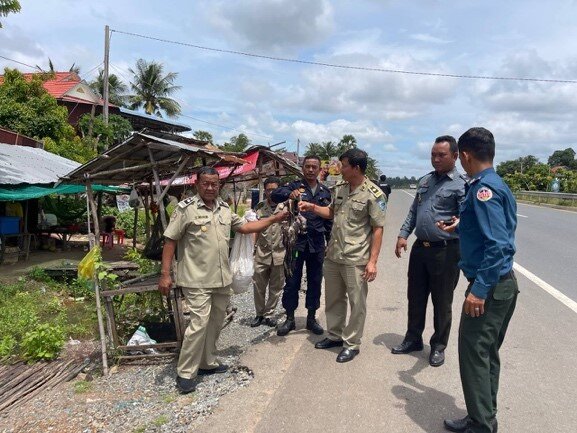By Elisabeth Gish | Grants Manager/Community Conservation Advisor
The Wildlife Rapid Rescue Team has been busy this year conducting its own operations to counter the illegal trade, while also putting greater focus on supporting local authorities to enforce wildlife laws themselves. This report shares some highlights of the Team’s achievements thus far in 2023.
Thanks to support from donors like you, during the first three quarters of 2023, the Team has:
With only 16 staff conducting operations and a mandate to protect wildlife nationwide, the Team cannot be everywhere at once. However, local Cambodian authorities such as Forestry Administration (FA) and Ministry of Environment (MoE) officers based in the provinces also have jurisdictional rights and responsibilities to enforce the Forestry Law and Protected Areas Law, respectively. To more effectively crack down on provincial hotspots for illegal wildlife trading, the Team has been helping to build their capacity.
Prior to the July national elections, local press focused attention on wildlife trading hotspots in Kampong Chham Province along National Road 6 and there was considerable public pressure to close down these vendors. Kampong Chham local authorities responded, and the vendors do not appear to have resumed selling since. In another example of local-led action, military police from Prey Veng Province contacted the Team when they discovered a minivan full of wildlife being transported from Thailand to Vietnam in mid-July. The Team immediately went to provide support. The van contained more than 280 live animals and 40 dead animals, including blue-and-gold macaws, cockatoos, parakeets, meerkats, squirrels, iguanas and tortoises, which likely had been trafficked long distances in terrible conditions. Sadly, because the majority were exotic species, which Phnom Tamao Wildlife Rescue Centre is not equipped to provide specialized care for, many perished following the rescue. Non-native species should never be released even if they recover from their traumas, so those that ultimately survive will spend their lives in captivity.
To build local authorities’ capacity, between June and August, the Team held 12 meetings to discuss wildlife law enforcement and collaborations with local FA and PDOE officials in seven provinces that are hotspots for the illegal trade. A total of 67 FA and 6 PDOE officials participated, which strengthened both their understanding of wildlife law enforcement and their relationships with the Team. The meetings were structured as a kind of informal training and covered topics including: wildlife crimes in general and in the jurisdictions of the attendees; an overview of legal and evidence confiscation procedures such as how to handle live wildlife and destroy bushmeat and wildlife parts seized; and experience sharing from cases the Team has handled. Possible collaborations for future operations were also discussed and communication channels were established so participants can easily to contact the Team to request ongoing, remote technical assistance with their cases (for example, help identifying wildlife species).
While more local authorities are taking greater responsibility, there are still a few entrenched trading hotspots active in the country and the Team recently provided targeted outreach to them. In September, the Team met with local authorities in charge of two hotspots in Kandal and Kampong Chhnang Provinces to discuss recurrent problems at those locations, outlined further steps to be taken, and went to inspect those places with them. Illegal wildlife was found during one inspection and, with the Team’s support, local authorities confiscated a total of 13 live animals (whimbrels, red-collared doves and a rate snake) and 34 dead birds of three different species. The traders were issued warnings to stop selling wildlife.
Building local authorities’ capacity and will to enforce wildlife laws is a long-term approach that we expect will ultimately provide more comprehensive protection for wild animals nationwide. Donations from GlobalGiving supporters like you make it possible for the Team to respond to calls for assistance from local officers around the country and help deepen their skills and understanding. Thank you so much for supporting our work.
Project reports on GlobalGiving are posted directly to globalgiving.org by Project Leaders as they are completed, generally every 3-4 months. To protect the integrity of these documents, GlobalGiving does not alter them; therefore you may find some language or formatting issues.
If you donate to this project or have donated to this project, you can receive an email when this project posts a report. You can also subscribe for reports without donating.
Support this important cause by creating a personalized fundraising page.
Start a Fundraiser


